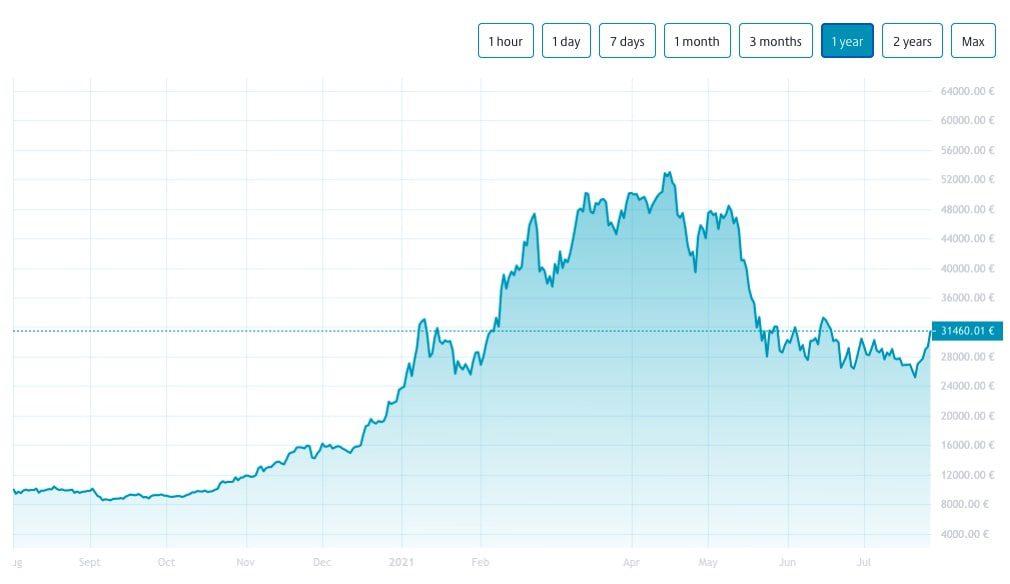With the very public entrance of companies like Stone Ridge, MicroStrategy, and Tesla with Elon Musk into BTC, it looks like institutional investors are buying bitcoin.
However, the truth of the matter may be quite different. While people increasingly speak of bitcoin as a hedge against inflation, institutional investors still face some challenges when entering into bitcoin positions for the first time.

When Will Institutional Investors Buy Bitcoin?
For example, the buying power of institutional investors may be somewhat stilted because of a lack of appropriate opportunities. Most institutional investors are not likely to tolerate direct exposure to bitcoin.
Why is this? From an institutional buying perspective, there are several risks to consider.
How are Institutional Investors Buying Bitcoin?
First of all, bitcoin custody is a challenge. I.e., missteps can result in the irretrievable loss of millions of dollars. As a result, a growing number of companies offer institutional-grade custodial services for long-term holding or crypto assets. However, for some institutional investors, the risk of investing in cryptocurrencies is still too significant.
Beyond crypto custody, regulatory ambiguity may play a role in keeping institutional investors out of crypto markets. Although, Jesse Spiro, Chief Government Affairs Officer at Chainalysis, told Forbes that it’s more about perception than reality. “Regulation itself is not limiting institutional investors. A perceived lack of regulatory clarity is,” he said.
Institutional Investments Need Wider Access to BTC-Based Investment Products
In any case, many institutional investors buy into BTC-based investment products rather than purchasing and holding Bitcoin itself. There’s just one problem. Depending on where an institutional investor is located, the Bitcoin investment products they have access to can be very limited.
For example, Bitcoin exchange-traded funds (ETFs) are available in the United Kingdom, Canada, Brazil, and several other locations globally. Meanwhile, they are still not available to those interested in investing in Bitcoin in North America.
As Forbes reported in December 2020, institutional investors in the U.S. can choose between a small number of similar products. For example, the Grayscale Bitcoin Trust (OTCMKTS: GBTC). Between June of 2020 and June of 2021, shares of GBTC grew from roughly $10 to $28 apiece, an increase of 180 percent.
It’s difficult to discern exactly how much of this growth comes from retail investors. At the same time, many analysts consider the growing popularity of the Grayscale Bitcoin Trust an indication that institutional investors have their eyes on BTC.
Another indication is Goldman Sachs’ offering to their institutional clients. Goldman’s investment bank launched a crypto trading desk focused on BTC. Goldman Sachs also proclaimed Bitcoin a new asset class.
However, as long as the number of BTC-based investment products is limited, institutional cash flow into bitcoin may be stilted. For this reason, analysts widely believe that the approval and launch of a bitcoin ETF in the United States could open the floodgates for institutional inflows.
When Will a Bitcoin ETF Launch in the United States?
Several high-profile firms have filed for the right to launch bitcoin ETFs over the past several years, including Bitwise Asset Management and Van Eck. So far, none of them have received approval. However, some analysts are optimistic that the United States could have its own Bitcoin ETF by the end of 2021.
Why is this? Perhaps the most critical factor is the departure of Jay Clayton from the United States Securities and Exchange Commission, the regulating body in charge of exchange-traded funds. In October 2019, Jake Chervinsky, a general counsel lawyer at Compound Finance, tweeted that: “At this point, it’s reasonable to assume that Jay Clayton’s SEC will never approve a bitcoin ETF.”
At this point, it's reasonable to assume that Jay Clayton's SEC will never approve a bitcoin ETF.
— Jake Chervinsky (@jchervinsky) October 10, 2019
His term ends on June 5, 2021, but could go another 18 months longer.
Usually we'd see new ETF proposals filed immediately after rejection, but it might be time to take a year off.
After Clayton left his position as the SEC chairman in 2021, he was succeeded by Gary Gensler. While Gensler doesn’t exactly have a reputation as a crypto advocate, he is highly knowledgeable about the subject. Prior to his appointment to the SEC, Gensler was the Senior Advisor to the MIT Media Lab’s Digital Currency Initiative. Therefore, some analysts believe that the SEC is more likely to approve a bitcoin ETF under his jurisdiction.
Additionally, Senator Elizabeth Warren gave the SEC a deadline of July 28 to respond to questions about crypto exchanges and their regulation. This could mean a Bitcoin ETF hits the US sooner than anticipated.
Are Institutional Investors Ruining Bitcoin?
The influx of institutional cash that a US-based bitcoin ETF could cause would theoretically be a good thing for the price of bitcoin. However, some older voices in the cryptocurrency space believe otherwise. They argue that the entrance of institutional investors into bitcoin is causing the ethos of BTC to change. Instead of a tool for financial liberation, some believe that bitcoin is becoming a tool to make the rich even richer.
However, as long as retail investors continue to participate in bitcoin’s growth, they may have the opportunity to experience the benefits that BTC can bring.

